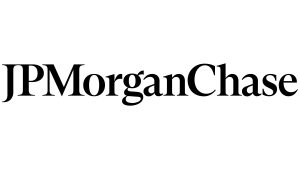In the years since the global financial crisis, Africa has witnessed a rapid expansion of cross-border banking, led by banking groups based in Africa that are spurring financial and economic integration and transforming the continent's financial landscape. These institutions are occupying a space created by the retreat of several global bank groups from Africa in the wake of the crisis.
The expansion is evident across the region. African banks headquartered from Morocco to South Africa have each established business operations in at least 10 countries. Ecobank, headquartered in Togo—is present in more than 30 countries on the continent.
The banks have facilitated many positive changes—providing customers with new and better products and services, operating improved IT and management systems, and observing more advanced regulatory and accounting standards. But these groups also pose new challenges for African regulators and supervisors, with potential implications for economic and financial stability. Many of these challenges have been felt worldwide, particularly in Europe, necessitating a strengthening of banking regulation and a tightening of oversight.
It falls to African financial sector regulators and supervisors to rapidly address these new challenges. They are moving to upgrade supervisory procedures and practices by embarking upon unprecedented cooperation with peers across Africa—and with international supervisors, who are facing the same issues.
This complicated set of challenges was the topic of a conference on Cross-Border Banking and Regulatory Reforms: Implications for Africa from International Experience, held in Mauritius on February 1-2. The conference brought together more than 80 officials from Africa and Europe—including 12 African central bank governors—and bank chief executives, along with an IMF team led by Managing Director Christine Lagarde.
In opening remarks, the Managing Director spoke of the key need to ensure that supervision of bank holding companies takes place on a consolidated basis. This places an important burden on supervisors. It is also essential that supervisors in countries hosting systemically important bank subsidiaries are involved in the process by attending meetings of supervisory colleges and exchanging information.
“You face a delicate balancing act,” Lagarde said. “You need to enhance regulation and supervision but, in implementing global standards, you also must take into account local circumstances. Fortunately, you are not alone. The IMF and other bodies recognize the challenges you face and are committed to drawing on our global experience to assist you.”
The closed-door conference addressed the supervisory challenges of pan-African banking in detail, particularly the task of coordinating among economies that are at widely varying stages of financial sector development—and where bank subsidiaries are much more important—even highly systemic—to the local economies where they operate.
It is clear that these issues are not unique to Africa. In fact, many of the challenges—ranging from data-sharing to cross-border bank resolution—are common to advanced and emerging market economies.
So an important feature of the Mauritius conference was the participation of European supervisors who are grappling with the same challenges. The group was led by Stefan Ingves, Governor of the Swedish Central Bank and Chairman of the Basel Committee on Banking Supervision. In his speech on cross-border bank resolution, Ingves spoke to the issues that supervisors in the Nordic and Baltic countries have faced, particularly during and after the global financial crisis.
The IMF has played an important role in providing technical expertise to assist the efforts to develop effective cross-border regulation and supervision, including through the Fund's capacity development work. The conference was held at the Africa Training Institute, which along with the Mauritius-based AFRITAC South regional technical assistance centre and other regional centres, is deeply involved in this effort.
In his remarks, Ingves spoke to another role for the IMF in the cross-border banking work. “Besides being able to bring its expertise, let alone its financial muscles, to the table, the Fund often also plays an important role as a neutral third party,” he said.
Managing Director Lagarde, in her speech, spoke of the broader purpose of a stronger financial sector in Africa. “At the end of the day, a strong regulatory and supervisory setting can help ensure that healthy banks are able to provide the lifeblood of Africa's economic resurgence. This will be a long-term effort, and we will be with you every step of the way,” Lagarde said.
(Source: International Monetary Fund)




















